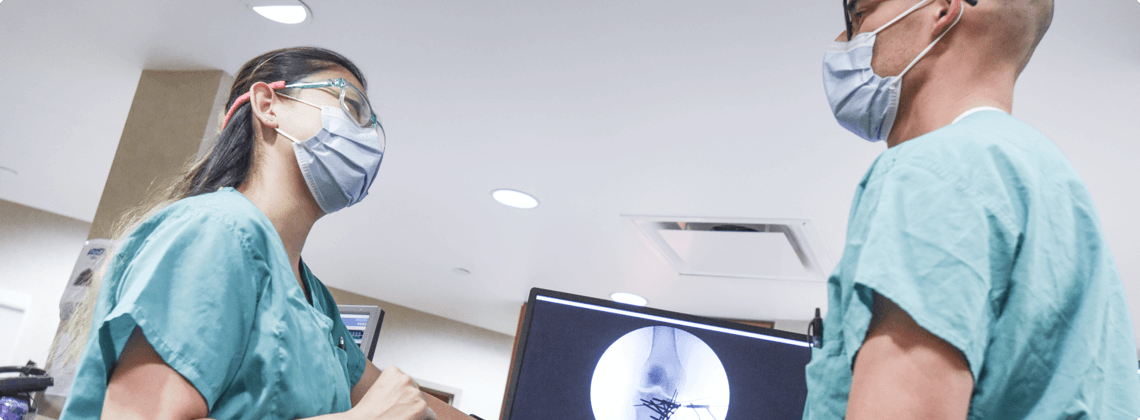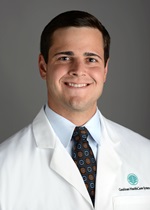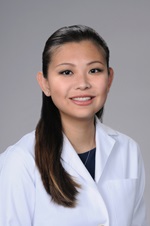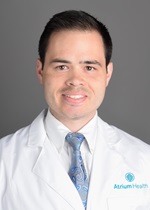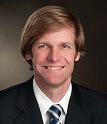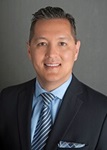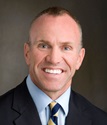Resident Education
Clinical Education
The paradigm for clinical education in the CMC orthopaedic surgery residency program is attending-resident mentorship. This means that residents work one-on-one with attendings for each patient encounter during a majority of their training. Benefits include tailoring education to what is most important for the learner at each point in time and fostering closer relationships between attendings and residents. See our clinical rotation structure for more information on how this is put into practice.
Resident Experiences with the Mentorship Model
|
|
Bradley Young, MD, Orthopaedic Surgery Class of 2022
"The mentorship model at our institution has provided me with a 360° experience of each subspecialty, helping me choose a fellowship and career path. It has been an unparalleled experience, allowing me to take ownership of a service and optimize my surgical and clinical skills." |
|
|
Katherine Li, MD, Orthopaedic Surgery Class of 2023
"One of the most special things about this program is that we get paired one-to-one with an attending, largely without a fellow, which means that you not only absorb knowledge about that service but also get an education on the nuances of being a part of a productive orthopaedic practice. Really notably, the additional insight and guidance given in and out of the OR builds strong attending-resident connections while in residency and also fosters relationships when ultimately residents become colleagues. You graduate residency not just with surgical skills and knowledge but also with a community that continues to be a resource well after the 5 years here." |
|
|
Lou Posey, MD, Orthopaedic Surgery Class of 2024
"The mentorship model allows for a truly exceptional training environment. At the beginning of a month as a junior resident, you get to learn new techniques for surgeries you thought you understood in addition to completely novel surgeries unique to that attending’s practice. Fostering a relationship with your mentor and building upon skills over the course of the month, the mentorship model affords you the opportunity to confidently and competently execute steps or entire surgeries unique to that rotation, and you can carry those new skills and knowledge into the next month with a new mentor." |
Faculty Teaching Philosophy
With 49 clinical faculty in our program, we are proud to provide a broad range of teaching philosophies to mesh with all residents’ preferred learning styles.
|
Glenn Gaston, MD, Hand Surgery Faculty |
There is a quote from a faculty survey of me be an anonymous resident posted in my office on the wall that sums it up: "Pertinent relevant cross-sectional examination was encountered daily. Come prepared or prepare to feel the pit of disappointment in your stomach." I think being a great teacher is finding that perfect balance of pushing the mentee to perform at their highest level possible, without the intent being perceived as malicious or condescending. Pre-operative discussions of resident expectations for upcoming surgeries to enable maximal preparedness must then be met with appropriate scrutiny, to ensure all knowledge deficits are identified and corrected. This of course must unfold in an environment in which the mentee can see your unbridled enthusiasm for your field, to enable them to desire the same. I want each day together to feel like a championship sporting event for them: nervous, excited, prepared and wanting to end the day having maximized their potential. |
|
Joseph Hsu, MD, Orthopaedic Trauma Faculty |
“If you give someone a fish, you feed them for a day. If you teach someone to fish, you feed them for a lifetime.” Lao Tzu I try to give trainees the constructs at tools upfront to build on incremental successes in the OR. For, example using constructs like FREE education and PERFECT planning, learners not only know what to expect, they know how to succeed in advance so they progress case to case, day to day, and week to week. It’s exciting to see it happen! Daily AARs (After Action Reviews) help me wrap up the day with the trainee, and review everything from execution of the plan, to psychomotor performance, to larger concepts of team building and management. This “hey-do-you-have-a-few-minutes?-call” is the highlight of my day. |
|
John Masonis, MD, Adult Reconstruction Faculty |
There is no substitute for the mentor/apprentice educational model when learning a physical skill that requires constant thought and adaptation. Residents and fellows come here to operate, perfect skills, and implement the knowledge they have gained. It is my job to give them that opportunity and to push their comfort zone. In my eyes, perhaps the most optimal educational moments arise during surgery when something does not go “as planned”. It is in these moments when the perfect words are uttered: Ok, what do you want to do now? And why? Putting it all together in the seconds that follow: the knowledge, the anxiety, the logic, the plan, and the command of the team. It is in these moments when I see true growth in a young surgeon. |
Residents as Educators
Learning how to teach others is an important part of any residency program. While mentorship is the cornerstone of our resident education, we also recognize the importance of near-peer education. Academic physicians will have to educate future generations of physicians, and all orthopaedic surgeons teach their fellow clinicians skills such patient evaluation, cast and splint application, and assisting in surgical procedures. Our residents gain substantial teaching and presentation experience through interactions with medical students, educating fellow residents, and grand rounds presentation to the entire Atrium Health Musculoskeletal Institute with assistance and feedback from attendings.
Subspecialty Fellowships
Although the mentorship model ensures direct education from attending to resident, our residency program also benefits from fellows in our highly regarded subspecialty training programs including orthopaedic trauma, hand surgery, sports medicine/shoulder & elbow, spine, foot and ankle, and adult joint reconstruction. Orthopaedic subspecialty fellows provide additional valuable education through their unique perspectives as surgeons who have recently graduated from other residency programs and are about to start their own careers.
Medical Students
Atrium Health Carolinas Medical Center is a designated campus for the University of North Carolina School of Medicine. In the summer of 2022, this relationship will be transitioned to Wake Forrest University School of Medicine. We routinely have third-year medical students rotate through our department for a short subspecialty elective as part of their general surgery rotation and fourth-year medical students, including those visiting from other programs, who complete 1-month rotations as sub-interns. Working with medical students provides excellent teaching experience for our residents. More information about our medical student rotations can be found here.
Residents in Conference
Various conferences are held every morning of the week, Monday through Friday, immediately following trauma checkout. All residents are excused from clinical duties to attend. These activities provide a structured learning environment to complement the mentorship structure of our rotations. Both residents and faculty present at these conferences.
Core Curriculum
Core curriculum conferences are held every Monday, Tuesday, and Wednesday morning and consist of biyearly topics split up by each subspecialty -- spine, pediatrics, adult reconstruction, trauma, foot and ankle, hand, oncology, sports medicine, and limb lengthening and deformity. Lectures take the form of case reviews, journal article reviews, and didactics. These are almost always given by an attending. A few times each year, these lectures cover practice management and business-related topics such as contract negotiations, how and when to utilize an Advanced Practice Provider, workers compensation, and other topics that will help make the transition into practice less daunting for our residents. Our research curriculum that teaches how to effectively conduct and evaluate research is also included in this schedule.
Grand Rounds
Grand Rounds takes place three weeks each month on Thursday mornings and is given by residents on a rotating basis. Residents independently prepare presentations and obtain relevant case-studies for any topic they choose. Attendings are very supportive and often invaluable in formulating these discussions. This experience also imbues public speaking and presentation skills while concurrently educating fellow residents and providing an avenue to foster resident-attending mentorships. Examples of these talks can be seen on our department YouTube site.
Visiting Professorships
Throughout the year, distinguished individuals are invited to speak during our Grand Rounds. The residents typically present cases for discussion after the visiting professor’s presentation.
Journal Club
Several articles are selected by subspecialty attendings every few weeks for group discussion after Grand Rounds. Additionally, there are separate journal clubs in which the residents participate during their subspecialty rotations.
Morbidity and Mortality Conference
This is an Atrium Musculoskeletal Institute-wide conference presented monthly by our chief residents. Topics rotate through each subspecialty within orthopaedic surgery. Patients with adverse outcomes are selected from a prospectively collected database to maximize education and process improvement. Often attendings from other departments are invited for cases that span specialties to improve holistic patient care.
National Conferences and Courses
Each year residents attend an instructional meeting with their classmates. Additionally, residents are encouraged to attend any meeting in the US where they will be presenting their own research. Funding from the department of Graduate Medical Education covers the cost of the yearly meeting including travel, hotel accommodations, and meals. Instructional meetings typically attended are:
- PGY-1: AO Basic Course
- Research Fellow: American Academy of Orthopaedic Surgeons Annual Meeting and a Leadership Meeting
- PGY-2: Arthroscopy Skills Course
- PGY-3: International Pediatric Orthopaedic Symposium
- PGY-4: American Academy of Orthopaedic Surgeons Annual Meeting
- PGY-5: Miller Review Course
Anatomy/Surgical Simulation
Our surgical simulation program is a true highlight of our training curriculum. It provides our residents and medical students opportunities to enhance their knowledge of orthopaedic anatomy, practice commonly performed surgical procedures, master basic surgical skills, and prepare for complex surgical procedures.
There are 2 main components to our surgical simulation program:
Intern (PGY-1) August surgical sim month
Every August, our new intern class has the entire month to fully immerse themselves in a comprehensive skills program. Sessions include orthopaedic imaging with MSK radiologists, side-line management of the injured athlete, introduction to orthopaedic research, splinting/casting workshop, arthroscopic skills lab, cadaver dissections with faculty in small group environment from the finger tip to the toe, and many other sessions. We also look for unique learning opportunities to enhance the curriculum. For example, last year we sent our interns to Naples, Florida to tour a large orthopaedic manufacturing facility to better understand how ideas and concepts turn into commonly used orthopaedic implants. This month gives our interns an opportunity to create early relationships with fellow residents and attendings and arms them with an incredible knowledge base that will set the stage for their long-term success.
Subspecialty surgical simulation rolling curriculum
We have integrated our surgical simulation program into each subspecialty rotation. Residents have protected time and specific learning objectives. While on our sports rotation, for example, residents have two Fridays mornings per month to practice arthroscopic and open surgical techniques such as rotator cuff repair, ACL reconstruction, and tibial tubericle osteotomy. We provide our learners with cadaveric specimens and state-of-the-art equipment for these attending and fellow-guided sessions. Additionally, our program recently acquired an ArthroSim device, currently only available at a select number of programs nationally. This device uses haptics to mimic arthroscopic surgical procedures with both visual and tactile feedback. It allows residents the opportunity to build arthroscopic skill sets and to improve techniques learned from attendings. The ArthroSim is available 24-hours a day, so residents have ample opportunity and are encouraged to utilize this valuable educational tool.
Another example of our subspecialty sim program is our hand and microvascular curriculum. Our microsurgical lab sessions are completed early in training to prepare residents for clinical rotations involving microsurgery. Directed by Dr. Chadderdon, residents work with a microscope, initially with models and culminating with the completion of arterial and venous anastomoses on rat specimens with 10-0 suture.
The Director of the surgical simulation program is Dr. Nady Hamid. If you wish to learn more about this program please contact our residency coordinator.
Board Certification Exam Performance
We are extremely proud of our residents’ 100% pass rate for the American Board of Orthopaedic Surgery written exam for more than 20 years. They also routinely perform extremely well during their oral board certification exams.
Leadership in Education
Not only does our residency program have a well-structured educational program, but we have multiple faculty and residents also leading the way nationally with innovations in education. Some examples include:
Effectiveness of a Low Fidelity Cast Removal Module in Orthopaedic Surgical Simulation. Ruder JA, Brighton BK, Vander Have KL, Turvey BR, Hsu JR, Scannell BP. J Surg Educ. 2018 Sep-Oct;75(5):1329-1332. doi: 10.1016/j.jsurg.2018.01.020. Epub 2018 Feb 23. PMID: 29483034
Effectiveness of a Low-Cost Drilling Module in Orthopaedic Surgical Simulation. Ruder JA, Turvey B, Hsu JR, Scannell BP. J Surg Educ. 2017 May-Jun;74(3):471-476. doi: 10.1016/j.jsurg.2016.10.010. Epub 2016 Nov 7. Clinical Trial. Virtual Reality and Augmented Reality-Translating Surgical Training into Surgical Technique. McKnight RR, Pean CA, Buck JS, Hwang JS, Hsu JR, Pierrie SN. Curr Rev Musculoskelet Med. 2020 Aug 11. doi: 10.1007/s12178-020-09667-3. Online ahead of print. PMID: 32779019 Review.
Teaching Cortical-Screw Tightening: A Simple, Affordable, Torque-Directed Training Protocol Improves Resident Performance. Buck JS, Wally MK, Patt JC, Scannell B, Seymour RB, Hsu JR. J Bone Joint Surg Am. 2019 Jun 5;101(11):e51. doi: 10.2106/JBJS.17.01563. PMID: 31169584
What to Read and How to Read It: A Guide for Orthopaedic Surgeons. Krueger CA, Hsu JR, Belmont PJ Jr. J Bone Joint Surg Am. 2016 Feb 3;98(3):243-9. doi: 10.2106/JBJS.O.00307. PMID: 26842415 Review. No abstract available.
Young BL, Cantrell CK, Patt JC, Ponce BA. Accessibility and content of individualized adult reconstructive hip and knee/musculoskeletal oncology fellowship web sites. Arthroplast Today. 2017;4(2):232-235. Published 2017 Nov 26. doi:10.1016/j.artd.2017.10.003
Young BL, Cantrell CK, Ponce BA, Quade JH. Evaluation of Orthopaedic Trauma Fellowship Web Sites and an Assessment of 21 Content Domains. Iowa Orthop J. 2018;38:39-43

